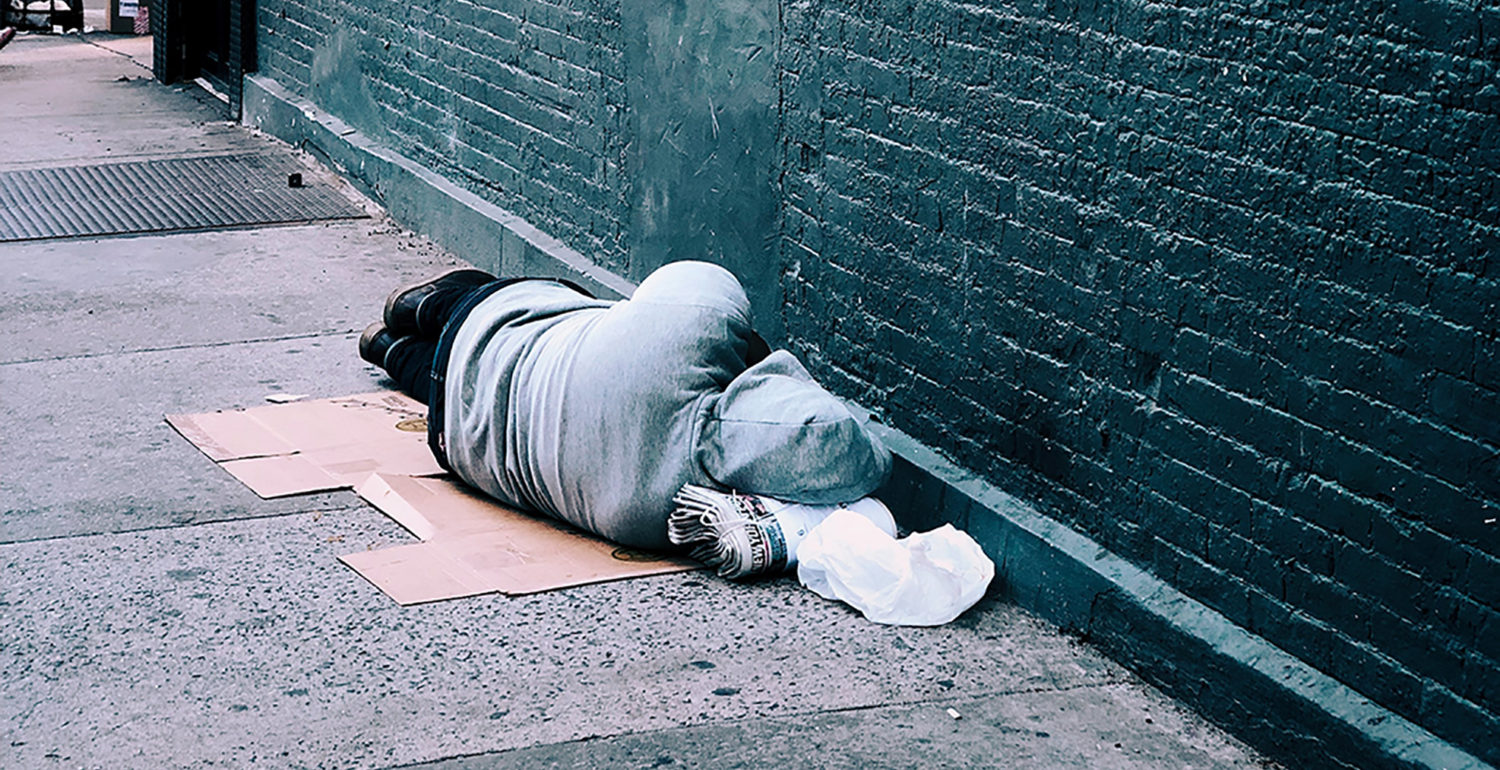Rebuilding trust
Labour councils should do more to act in solidarity with people experiencing homelessness and rough sleeping, writes Shaista Aziz.
In public spaces across this country, on the steps of the most grandiose buildings and amid bustling prosperity, is the all too familiar sight of human beings who have nothing. Most visible are the people sleeping rough or sitting, begging for compassion and change.
Caused by years of drastic austerity cuts, decades of housing policies which have meant too little social housing and an unaffordable private rental sector, the homelessness crisis has left many who are especially vulnerable to violence, discrimination, and exploitation on the streets.
The Labour Homelessness Campaign is a grassroots group of Labour members who are acting in solidarity with people experiencing homelessness. We’ve seen the incredible work that’s being done on the ground by overstretched homelessness services. But we’ve also identified a problem: for many experiencing homelessness, there has been a breakdown of trust with officialdom.
As a Labour councillor, it has been saddening for me to speak to rough sleepers who do not believe their Labour council or official homelessness services are on their side. It has been maddening to talk to grassroots homelessness campaigners around the country who have found themselves campaigning against the policies of their Labour council. While I know as well as anyone the incredible pressure austerity has put on council budgets, it’s time for us to start listening to these voices.
People on the streets are often treated like criminals, all too often by Labour councils. The 1824 Vagrancy Act means rough sleepers or those begging can be fined up to £1,000, imprisoned and given a criminal record. Thousands of people are prosecuted under the act every year – most for ‘aggressive begging’. The definition of ‘aggressive begging’ in some local authorities includes begging within 10 metres of an ATM.
In addition to this, a raft of antisocial behaviour legislation is used against people experiencing homelessness. Public space protection orders (PSPOs) can make it illegal to sleep rough or beg in certain areas. We’ve worked with people handed community protection notices (CPNs) threatening £20,000 fines for sleeping rough. Criminal behaviour orders (CBOs) and dispersal orders can also be used by councils and police to drive rough sleepers out of certain areas. Seventy per cent of criminalisation experienced by rough sleepers isn’t formal application of these criminal orders but rather informal ‘moving-on’ or threats of further action. When we use these orders we are driving the very people who have nowhere else to go out of our public spaces.
This is why the Labour Homelessness Campaign is campaigning for an end to all forms of homelessness criminalisation.
Thirteen of the 15 local authorities worst affected by homelessness are run by Labour. Labour councils are faced with an enormous challenge but also an opportunity for radical, empowering, socialist homelessness policies. This is an opportunity to show what socialism in power can mean.
That’s why we’re calling on Labour councils to make the following 4 commitments:
- Collaborate with each other and with homelessness groups to ensure a joined-up approach. Too often when we speak to councillors they worry that effective provision will actually attract more rough sleepers to their area. The humanitarian crisis around us is too drastic for those kinds of calculations and we need to be providing the basics today, including unrestricted severe weather emergency provision every night of lower temperatures and as much support as possible all year round. We must work openly with grassroots groups who have built up trust with those rough sleepers councils can’t reach.
- Show solidarity with all by adopting policies which care for everyone in need, even when the government makes this difficult. This means having provision for women and LGBT people who may not feel safe in general shelters. It also means supporting migrants regardless of immigration status. Under no circumstances should Labour councils cooperate with immigration officials targeting the most vulnerable. We also need to have answers for those with no recourse to public funds, either from council services or voluntary schemes that can be signposted to.
- Empower the most marginalised allowing people experiencing homelessness to be full members of their communities. We should facilitate and provide services from free official ID to locker space for personal possessions, to public toilets and bus passes which would give even long-term rough sleepers basic rights in the community and rebuild trust with official service providers.
- Challenge the most powerful by using the powers we do have to open up space for rough sleepers. This means opposing evictions and developments which would leave people homeless, supporting squatters’ rights, and where necessary using empty dwelling management orders (EDMOs) and other measures to force empty buildings to be used for people, not profit.
Above all, we need to show people experiencing homelessness that we are on their side.
It is a disgraceful failure of our society that we have let things get this bad. To end the crisis on our streets we need the help of people experiencing homelessness. We need to respect their agency and respect them as members of our community. I’ve met people experiencing homelessness who show incredible compassion and responsibility, who help each other, sometimes giving their last penny to a friend in need. As Labour councils, we need to start showing that spirit.

